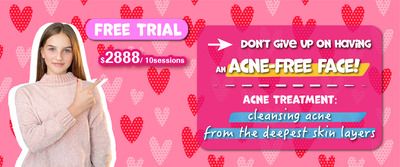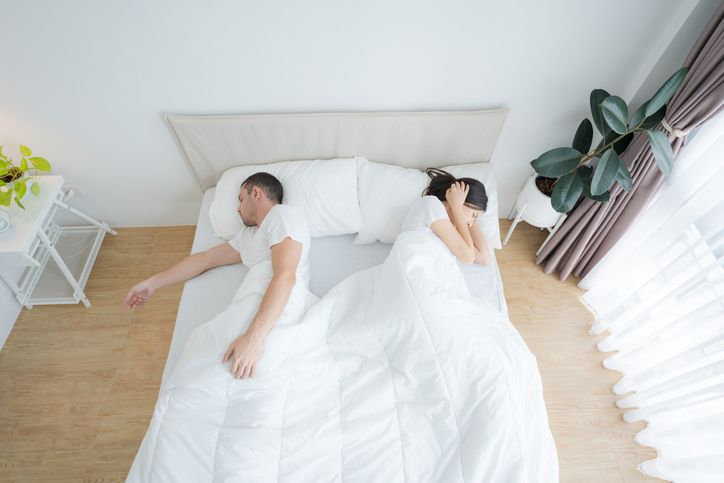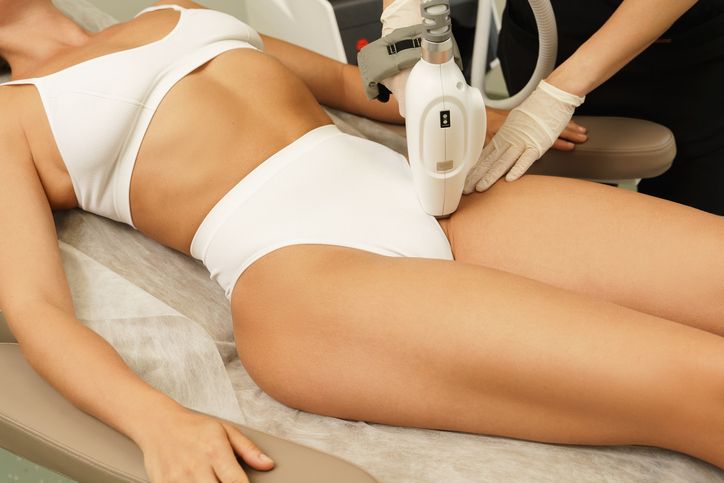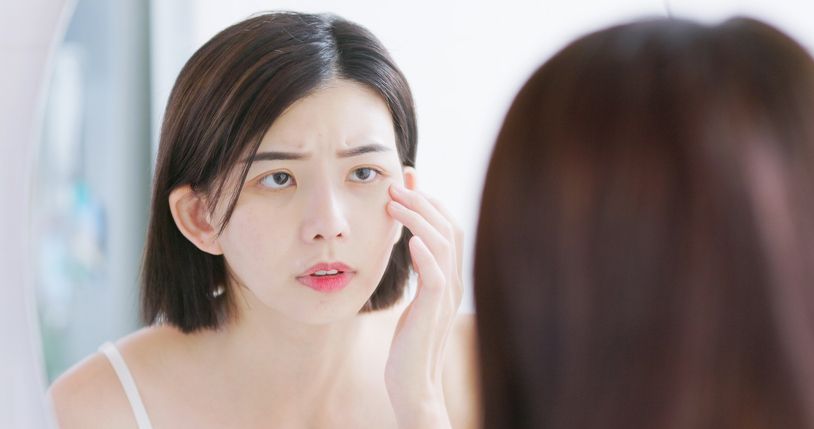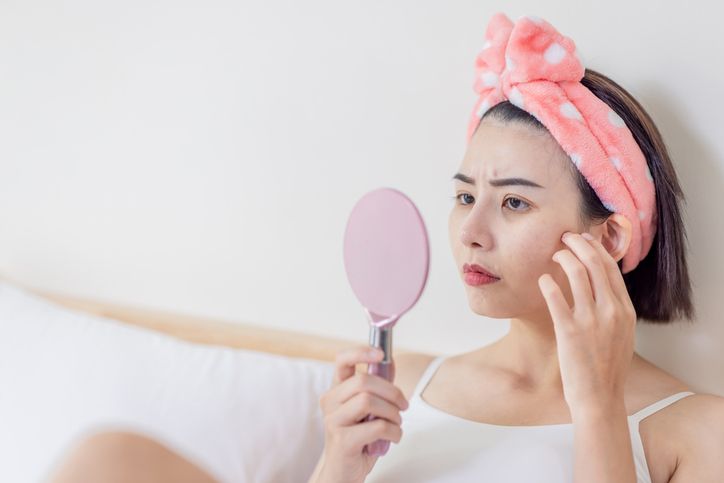- Home
- Trend
- Weight Loss Strategies
- Acne Tips
- Hair Health Information
- Blemish Removal Tips
- Acne Scar Removal Tips
- Muscle Building Techniques
- Intimate Care Tips
- Postpartum Intimate Care
- Eye Bags Wiki
- Tips for Face Slimming
- Secret of Permanent Hair Removal
- Breast Enlargement Tips
- Cure to Snoring
- Marionette Lines
- Skin-Tightening Secrets
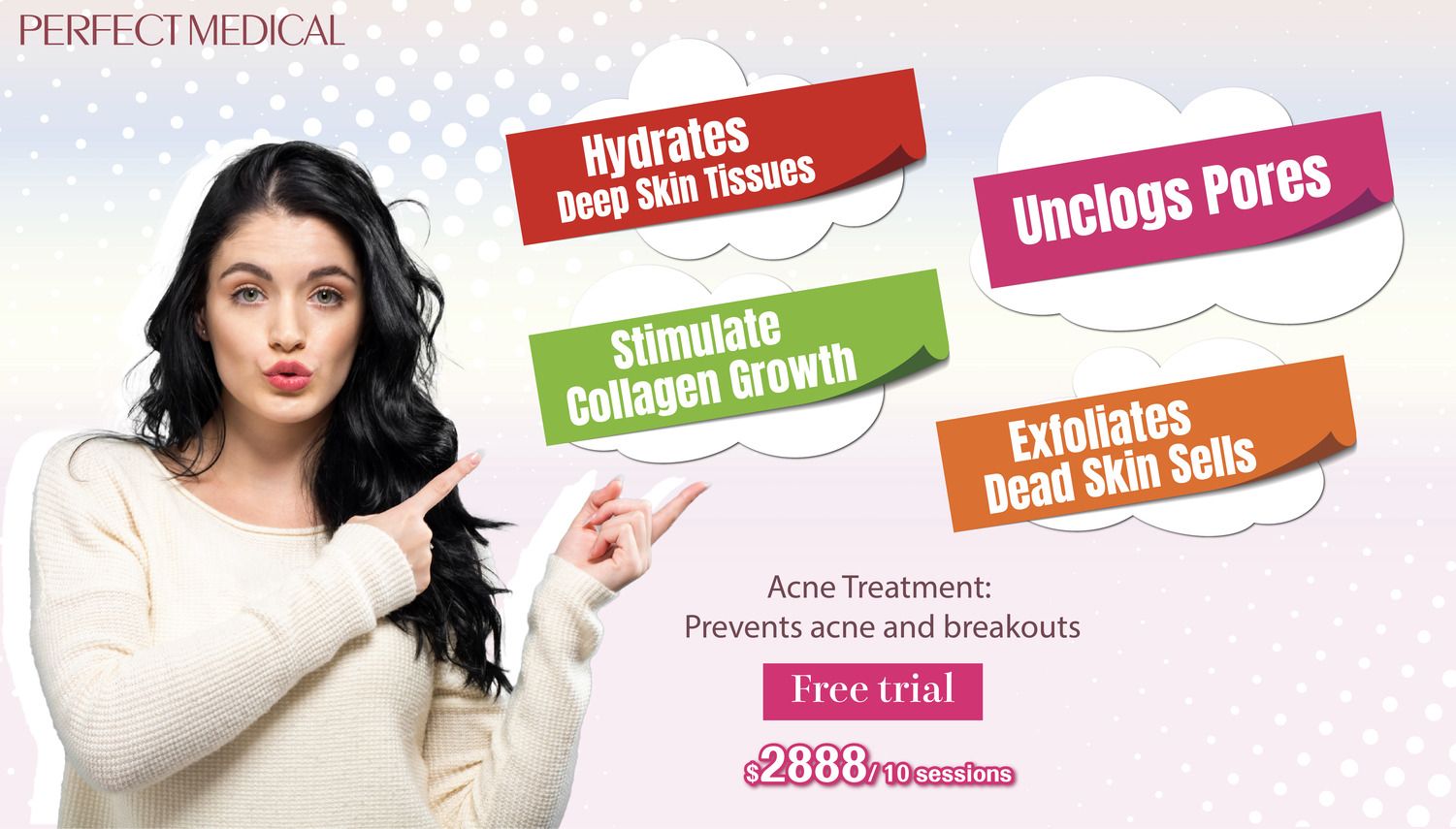
免費體驗
Acne Treatment
1 Minute Self-Registration
Date should not be before minimal date
Delving into the realm of skin concerns, we all might experience a hard time differentiating between acne and pimples. The often-bewildering similarity of these prevalent problems emphasises the significance of comprehending their disparities for proficient handling. Our journey will encompass the origins, remedies, and preemptive measures, empowering you with the insight to attain skin that is both luminous and blemish-free.
1
Acne and Pimples: Are They the Same on Acne Prone Skin?
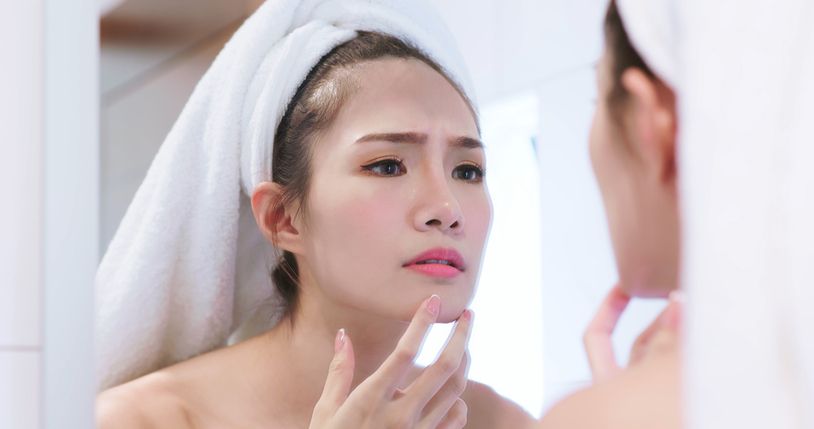
Acne: A Complex Group of Skin Issues
When we talk about acne, we're talking about a bunch of different skin problems that can happen. It's like a big family of issues that includes things like pimples, blackheads, and whiteheads. Acne happens because of different reasons like hormones (those are the body's messengers), family history (what your parents or grandparents had), and sometimes because sebaceous glands produce too much oil, which causes our skin to have excess oil. Acne can look different for different people. Some people have just a little bit, while others might have a lot. It usually shows up on the face, chest, back, and shoulders. For example, these 2 are the most common acne breakouts that we often hear about.
Acne vulgaris
Acne vulgaris is what we often refer to as regular acne. It's quite common, especially among teenagers. This type of acne is marked by things like pimples, blackheads, and whiteheads. It usually shows up on the face, chest, back, and shoulders. The main factors behind acne vulgaris include overactive oil glands, hair follicles getting clogged with oil and dead skin cells, and sometimes bacteria joining the mix. Hormones also play a big role, especially during puberty. Acne vulgaris can vary in severity, from mild to severe, and it's usually connected with oily skin.
Acne rosacea
Acne rosacea is a bit different. It's not the same as regular acne, even though the name might sound similar. This type of skin issue often affects adults, usually after the age of 30. It tends to show up on the face, and it's characterised by redness, visible blood vessels, and sometimes small, red bumps that might look like pimples. Unlike regular acne, rosacea doesn't usually involve blackheads or whiteheads. The exact cause of acne rosacea isn't completely understood, but it might involve factors like genetics, sun exposure, and problems with blood vessels in the skin. While it can resemble acne, rosacea requires different treatments and care.
Pimples: A Type of Acne
Now, let's zoom in on pimples. Parked under acne vulgaris, pimples are one type of problem that's part of the acne family. They're those red bumps that can show up on the skin. They're not comfortable because they can hurt a bit. Pimples happen when the tiny holes where hair comes out of the skin (we call these hair follicles) get blocked. Then, too many bacteria can grow there, and that's when pimples pop up. Pimples might not look great, but they're just a piece of the whole acne puzzle.
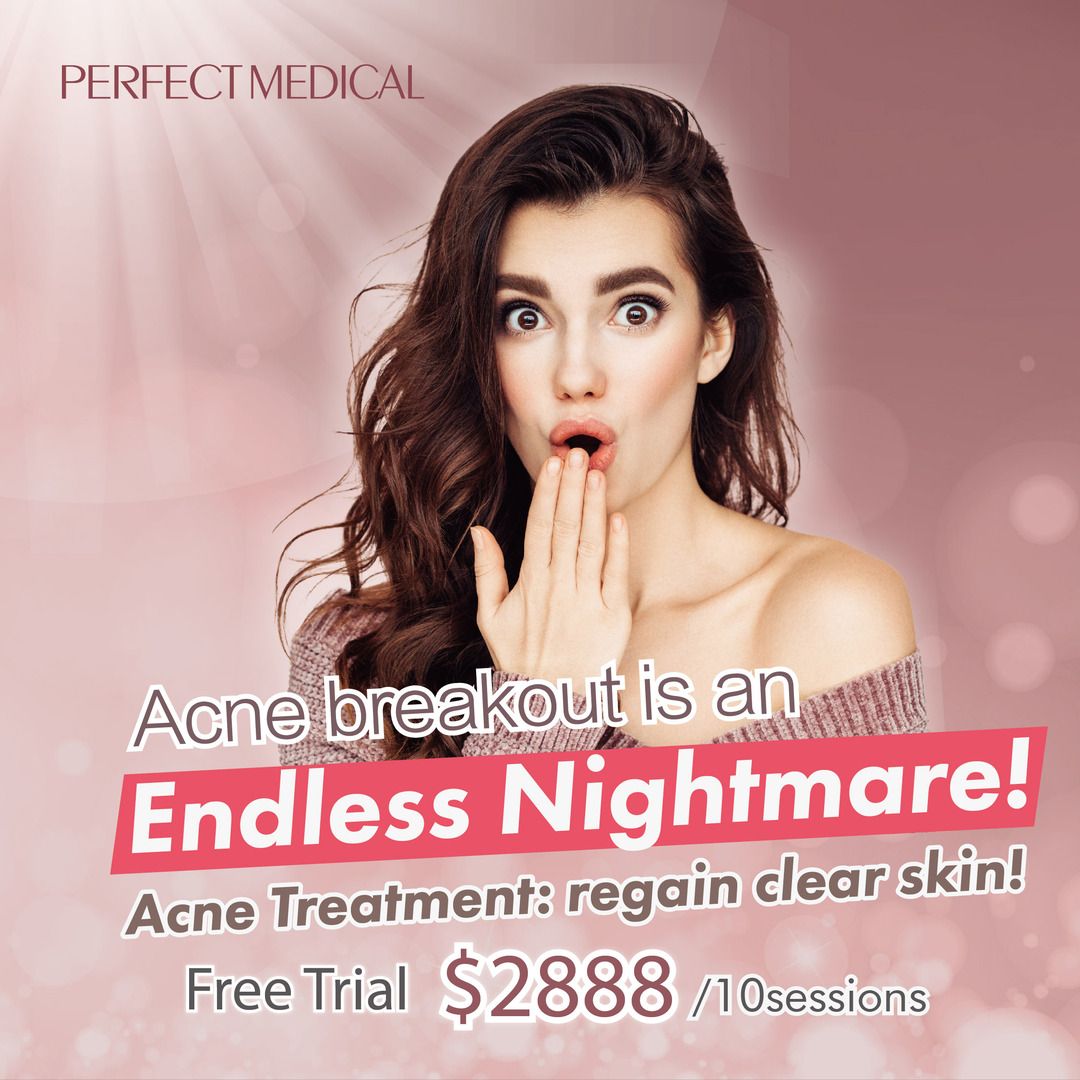
2
How Do I Know Which One I Have on My Skin?
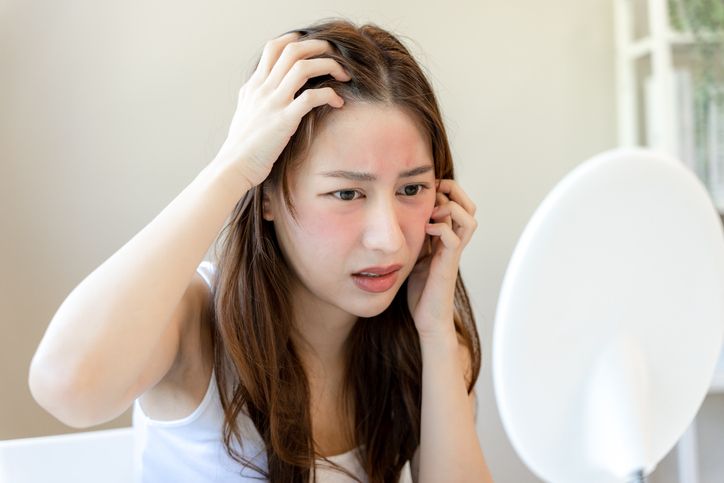
They are common characteristics for both conditions. You can identify your skin's surface by checking if you experience the issues below:
Acne vulgaris symptoms
- Presence of various types of blemishes, including pimples, blackheads, and whiteheads.
- Common during teenage years.
- Often caused by factors like overactive oil glands, clogged pores, and hormonal changes.
Acne rosacea symptoms
- Persistent redness on the face, especially on the central areas like cheeks and nose.
- Visible blood vessels, resembling tiny red lines, may be noticeable.
- Small, red bumps that might resemble pimples, but often lack the same characteristics.
- Typically affects adults, commonly over the age of 30.
3
Causes and Triggers of The Enemies to Our Skin Pores
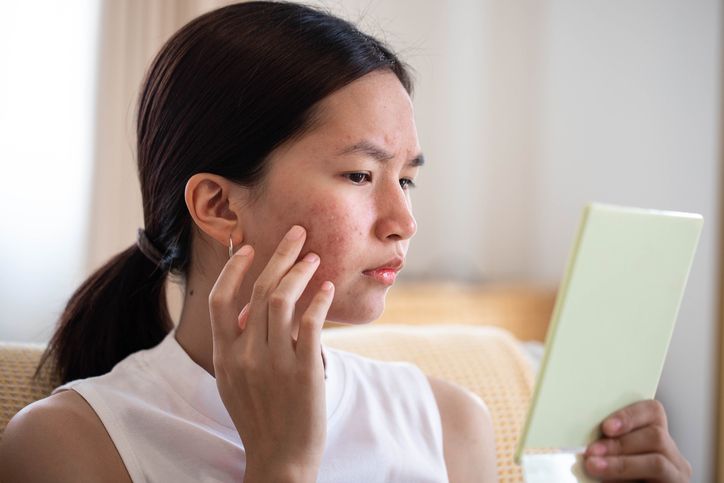
What triggers acne? Beyond genetics
Acne, with its diverse manifestations, can be attributed to a range of factors. Chief among these are hormonal shifts, particularly noticeable during puberty and menstrual cycles. Additionally, genetics play a pivotal role – if your parents experienced acne, it increases the likelihood of you facing it too. Diet choices, stress levels, and even specific medications can further intensify acne symptoms, exacerbating the condition.
What triggers pimples? Clogged pores and bacteria
Zooming in on pimples, which fall within the larger scope of acne, their emergence is linked to a specific set of triggers. Pimples come to life when excessive oil and bacteria traps dead skin cells within hair follicles. Hormonal imbalances, often connected to puberty or certain life stages, can ramp up oil production, resulting in clogged pores that pave the way for the formation of pimples. This distinct mechanism sets pimples apart from other forms of acne lesions, emphasising the role of clogged pores and bacteria in their origin.
By grasping the underlying triggers, we equip ourselves with the knowledge to adopt preventative measures and select appropriate treatments tailored to address the specific factors contributing to the development of acne and pimples.
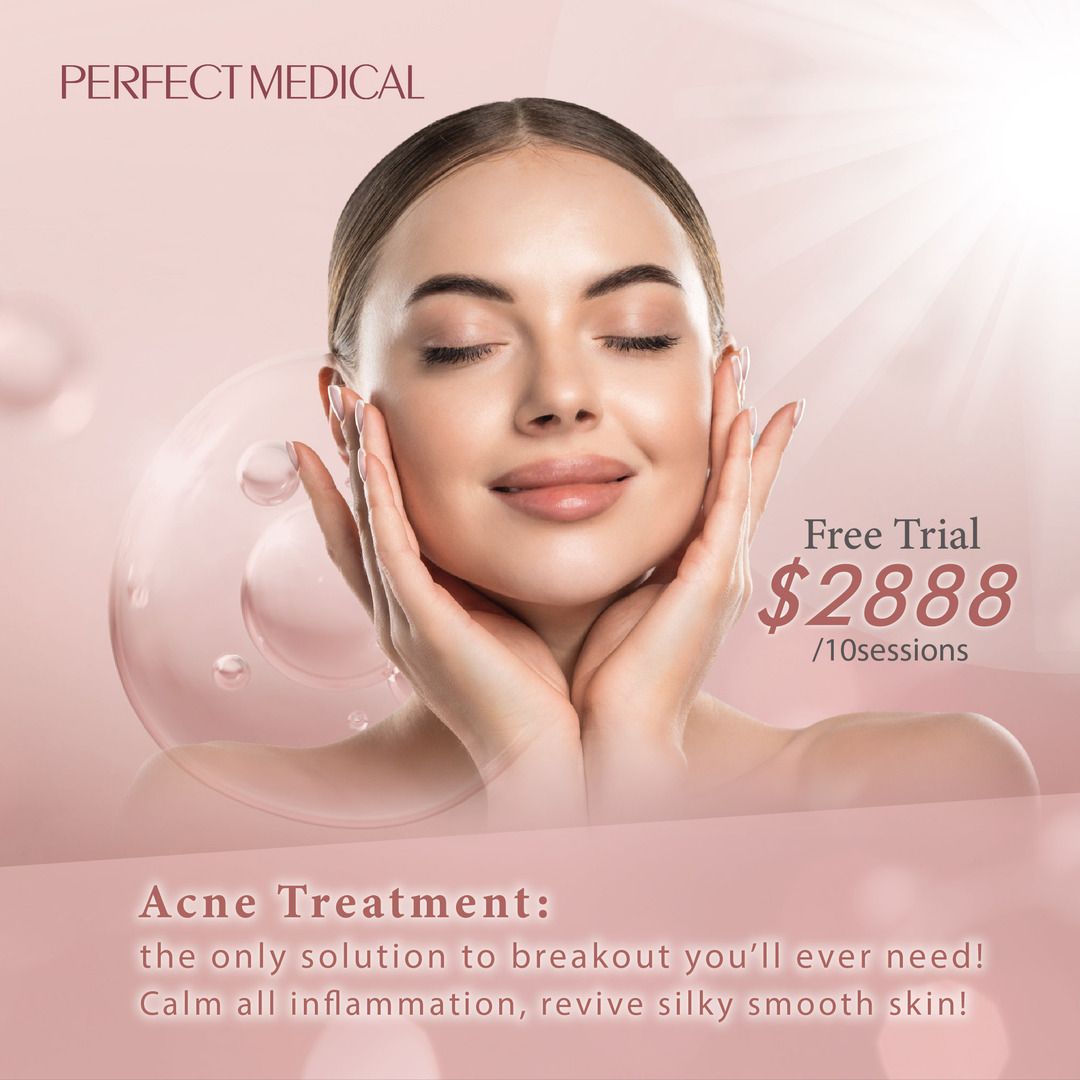
4
The Skin Battle: Don't Leave Them Untreated
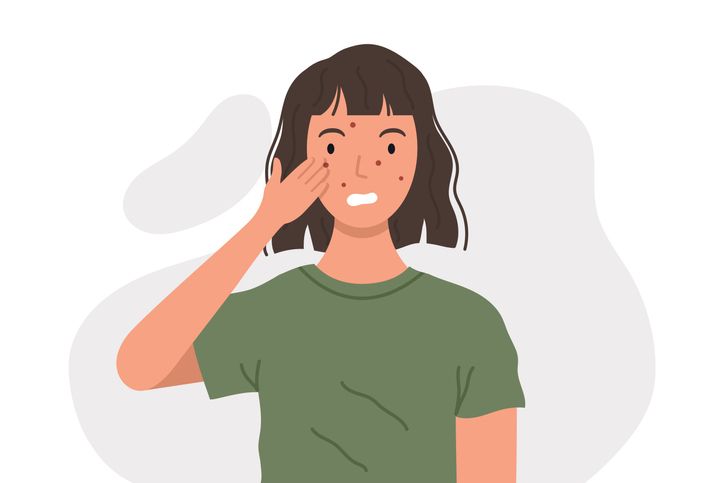
Leaving acne and pimples untreated can lead to a range of potential consequences for your skin and overall well-being.
Impact on skin health:
Scarring: Untreated acne lesions, especially those that are inflamed or cystic, have a higher likelihood of leaving scars. These scars can be permanent and affect the texture and appearance of your skin.
Hyperpigmentation: Prolonged presence of acne can lead to dark spots or patches on the skin, known as hyperpigmentation. These areas may take a significant amount of time to fade, even after the acne clears.
Worsening breakouts: Without appropriate treatment, acne can spread and worsen over time. The initial affected area may expand, leading to more extensive breakouts and a higher number of pimples.
Physical and emotional effects:
Pain and discomfort: Untreated pimples and acne can cause physical discomfort such as pain, tenderness, and itching.
Low self-esteem: The visible presence of acne and pimples can negatively impact self-confidence and self-esteem. The emotional toll of persistent skin issues can lead to feelings of self-consciousness and anxiety.
Social isolation: Individuals experiencing severe or noticeable acne may withdraw from social interactions to avoid judgement or embarrassment, potentially affecting their social life and relationships.
Long-term skin health:
Delayed healing: Pimples and acne that are left untreated may take longer to heal, extending the duration of discomfort and visible symptoms.
Complications: In some cases, untreated acne can lead to more severe skin conditions, such as cystic acne or even secondary skin infections.
Aging effects: Untreated acne can contribute to premature aging of the skin, as chronic inflammation and sun exposure can lead to wrinkles, fine lines, and skin texture irregularities.
In essence, neglecting to address acne and pimples can result in long-lasting consequences for both your skin's health and your overall emotional well-being. Seeking timely and appropriate treatment is essential to mitigate these potential outcomes and ensure the best possible skin health.
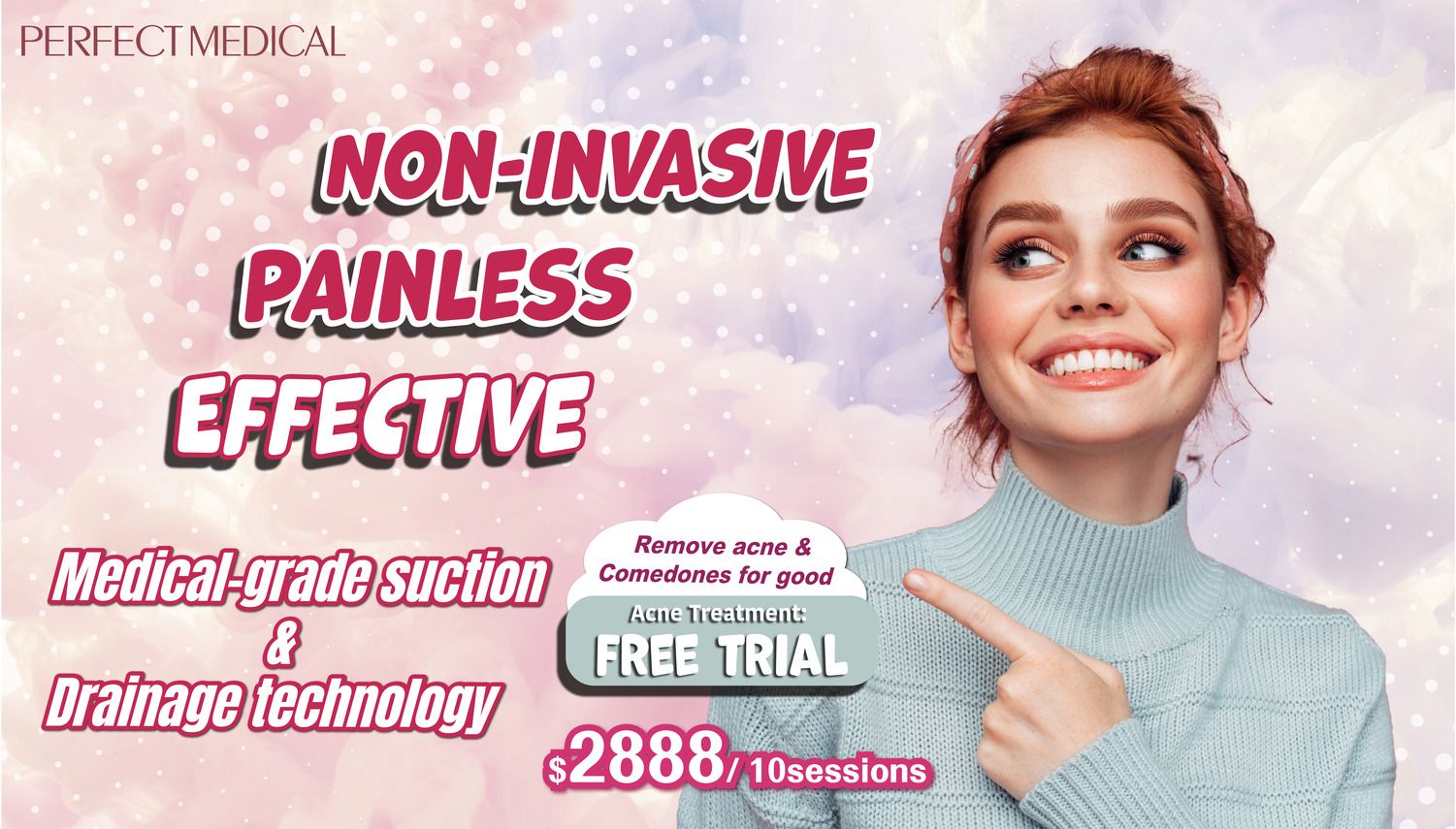
免費體驗
Acne Treatment
1 Minute Self-Registration
Date should not be before minimal date
5
Treatment Approaches: Is It Possible to Treat Pimples and Acne at once?
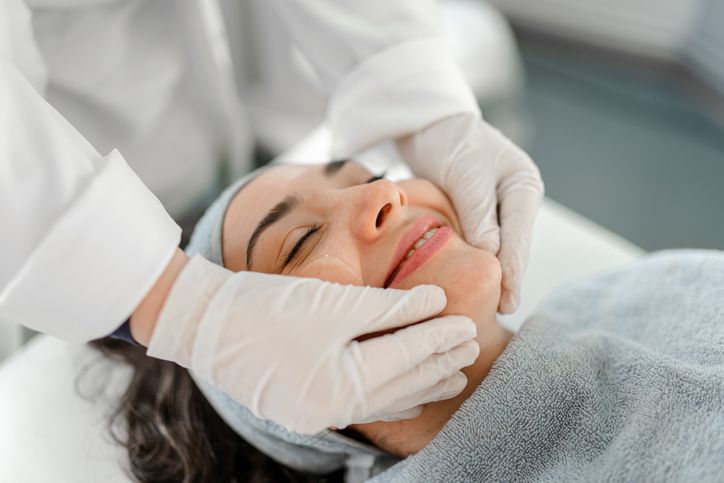
Worry not, if you get the issues treated early, you will be able to regain a healthy skin with little side effects. Here's how you can tackle them:
Tackling acne
Dealing with acne requires a well-rounded strategy that considers various elements contributing to the condition. Beyond just addressing the visible symptoms, a comprehensive approach aims to tackle the root causes. Topical treatments, often containing potent ingredients like benzoyl peroxide, salicylic acid, or topical retinoids, play a crucial role. These components work to unclog pores, reduce inflammation, and inhibit the growth of acne-causing bacteria. However, for more severe cases, dermatologists might recommend oral medications or hormonal therapies to comprehensively manage hormonal fluctuations or severe inflammation from within.
Tackling pimples
When it comes to managing pimples, a focused and precise approach is key. Pimples, while part of the broader realm of acne, demand specific attention. Targeted spot treatments, commonly formulated with ingredients such as benzoyl peroxide or salicylic acid, work to alleviate inflammation and promote the healing process. These treatments concentrate the therapeutic effects on the affected areas, aiding in the reduction of swelling and redness. Additionally, practicing gentle cleansing practices and refraining from excessive touching are equally vital steps to prevent worsening the condition and encourage quicker recovery.
Want to tackle both conditions? Perfect Medical's Acne Treatment
Perfect Medical's Acne Treatment stands out as a comprehensive solution for both acne and pimples, encapsulating a range of benefits. Its innovative two-way spiral suction-and-drainage technology provides a non-invasive yet effective approach to addressing these skin concerns. By first removing dead skin cells and unclogging pores, it mitigates inflammation and minimises the risk of bacterial infection. The subsequent infusion of a hydrating serum not only regulates sebum production but also supports collagen synthesis, fostering overall skin health. This dual-action mechanism creates an environment where acne is less likely to recur, while also enhancing the texture and appearance of the skin.
Incorporating Perfect Medical's Acne Treatment into your skincare regimen offers a comprehensive and innovative solution that caters to multiple facets of skin health, resulting in visible improvements in both acne and pimples.
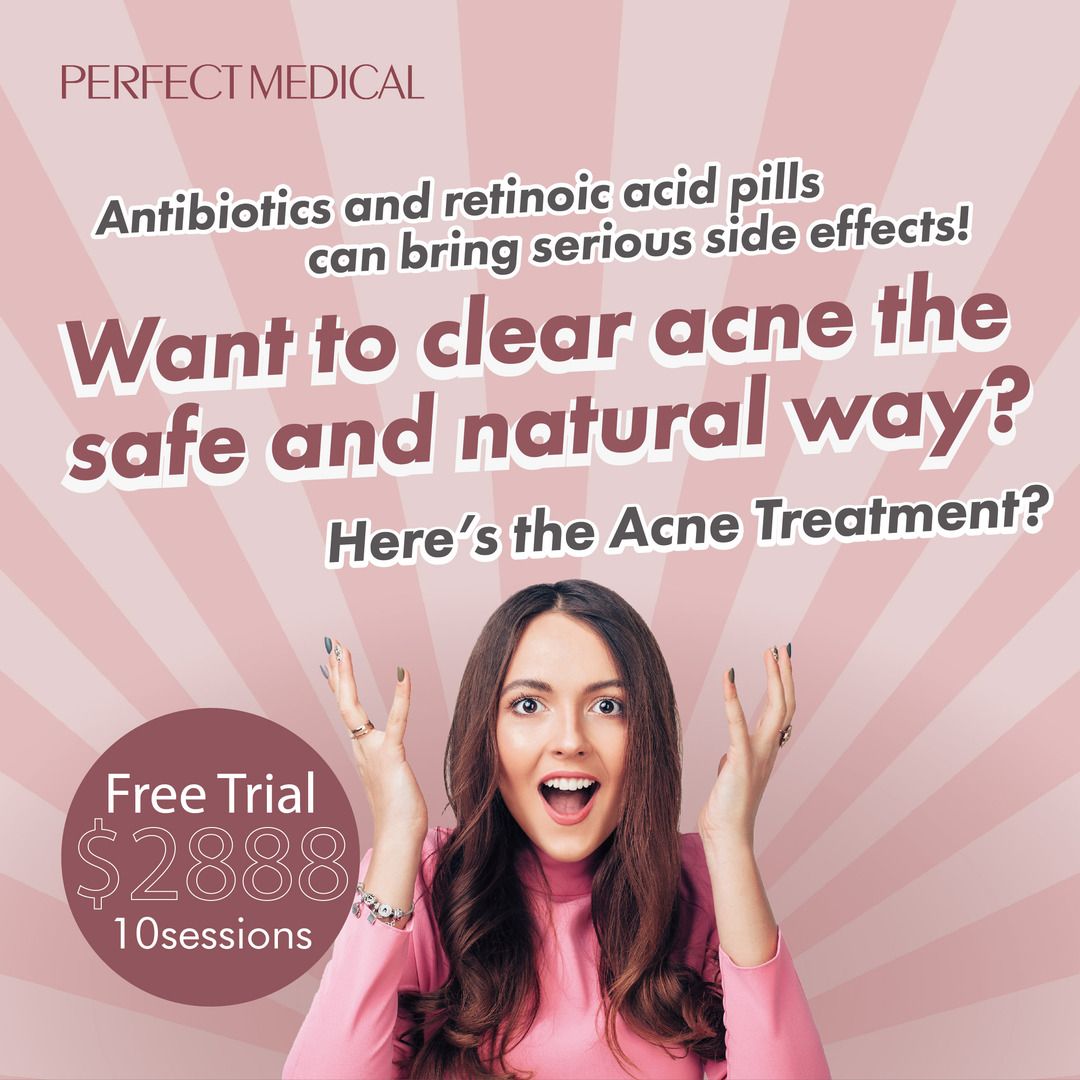
6
Prevention Strategies You Need to Know for Bright and Glowing Skin
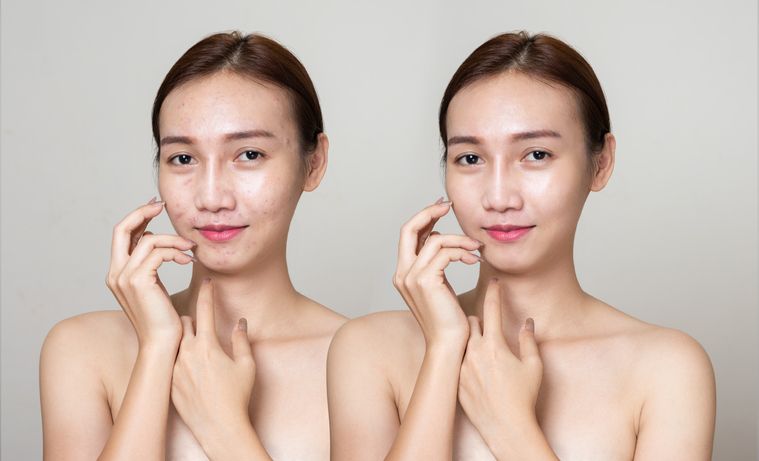
Preventing future outbreaks of both acne and pimples entails cultivating healthy habits and incorporating effective skincare routines into your daily life.
1. Nurturing skin health
Maintaining clear skin involves a multifaceted approach that begins with proper cleansing and moisturization. Regularly washing your face with a gentle cleanser helps remove excess oil, dirt, and impurities that can clog pores and lead to acne. Complementing this cleansing routine with non-comedogenic moisturisers ensures that your skin remains adequately hydrated without causing further breakouts. However, it's crucial to steer clear of harsh scrubbing techniques, as these can exacerbate inflammation and worsen the condition.
2. Hands off and beyond
Preventing pimples necessitates a combination of mindful behaviours that safeguard your skin's health. One pivotal tactic is to resist the urge to squeeze or pick at pimples. This harmful habit can introduce bacteria, worsen inflammation, and potentially result in lasting scars. Additionally, maintaining a hygienic environment for your skin can have a substantial impact. Regularly changing pillowcases minimises the accumulation of oils, dirt, and bacteria that can contribute to breakouts. Moreover, adopting a minimalist approach to makeup and avoiding excessive use can help prevent pore blockage and reduce the risk of pimples.
3. Healthy diet, healthy skin
Nourishing your body with a balanced diet rich in vitamins, minerals, and antioxidants can contribute to overall skin health. Opting for a well-rounded diet can significantly impact your skin's appearance. Prioritise foods like fruits, vegetables, lean proteins, and whole grains. These nutrient-rich choices provide essential vitamins and minerals that support overall skin health and contribute to a glowing complexion.
4. Sun protection
Shielding your skin from the sun's ultraviolet rays (UV) is a powerful preventive measure. Regularly applying broad-spectrum sunscreen with an adequate SPF rating helps prevent UV-induced damage that can exacerbate skin concerns. Consistently apply sunscreen with an appropriate SPF to safeguard your skin from potential damage that could exacerbate existing skin concerns. By protecting your skin from the sun, you're also preventing premature ageing and reducing the risk of skin conditions.
5. Stress management
Practising stress-reduction techniques like meditation, yoga, or deep breathing can have a positive impact on your skin. Stress is known to trigger hormonal fluctuations that can contribute to acne outbreaks and other skin issues.
6. Stay hydrated
Ensuring your body stays well-hydrated by drinking ample water is an integral aspect of skin health. Hydration helps in the elimination of toxins from your system while keeping your skin adequately moisturised from the inside out.
- Warning: Seasonal Breakouts are Coming! Best Acne Cleansers for Hong Kong's Humid Spring 2025!
- Getting Rid of Acne Scars 101: A Guide for Sensitive Skin
- What is Milia? Detailed Guide: Appearance, Formation, Comparison to Blackheads and Whiteheads, and Effective Solutions for All Skin Types!
- Get Rid of Chin Acne: Effective Solutions + Prevention Tips
7
Conclusion
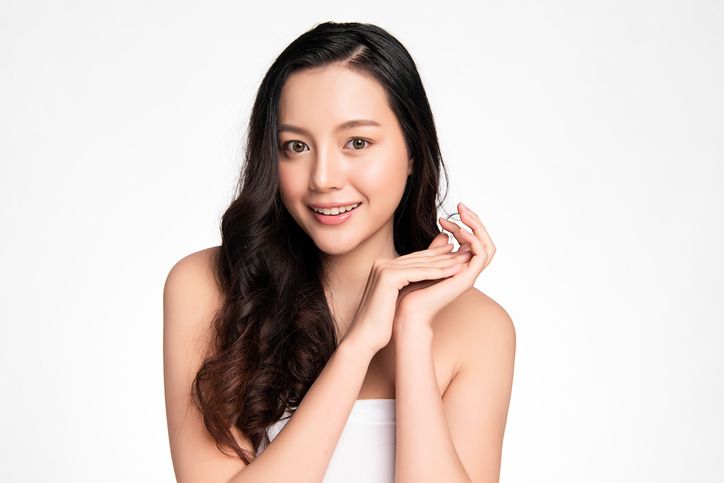
In conclusion, grasping the difference between acne and pimples empowers you to take charge of your skin's health. Remember that while pimples are a visible aspect of acne, addressing the underlying causes and adopting a suitable approach to skincare can lead to clearer and more radiant skin. By following expert tips, staying consistent with your skincare routine, and seeking professional guidance when needed, you can overcome these skin challenges and feel confident in your skin's appearance!
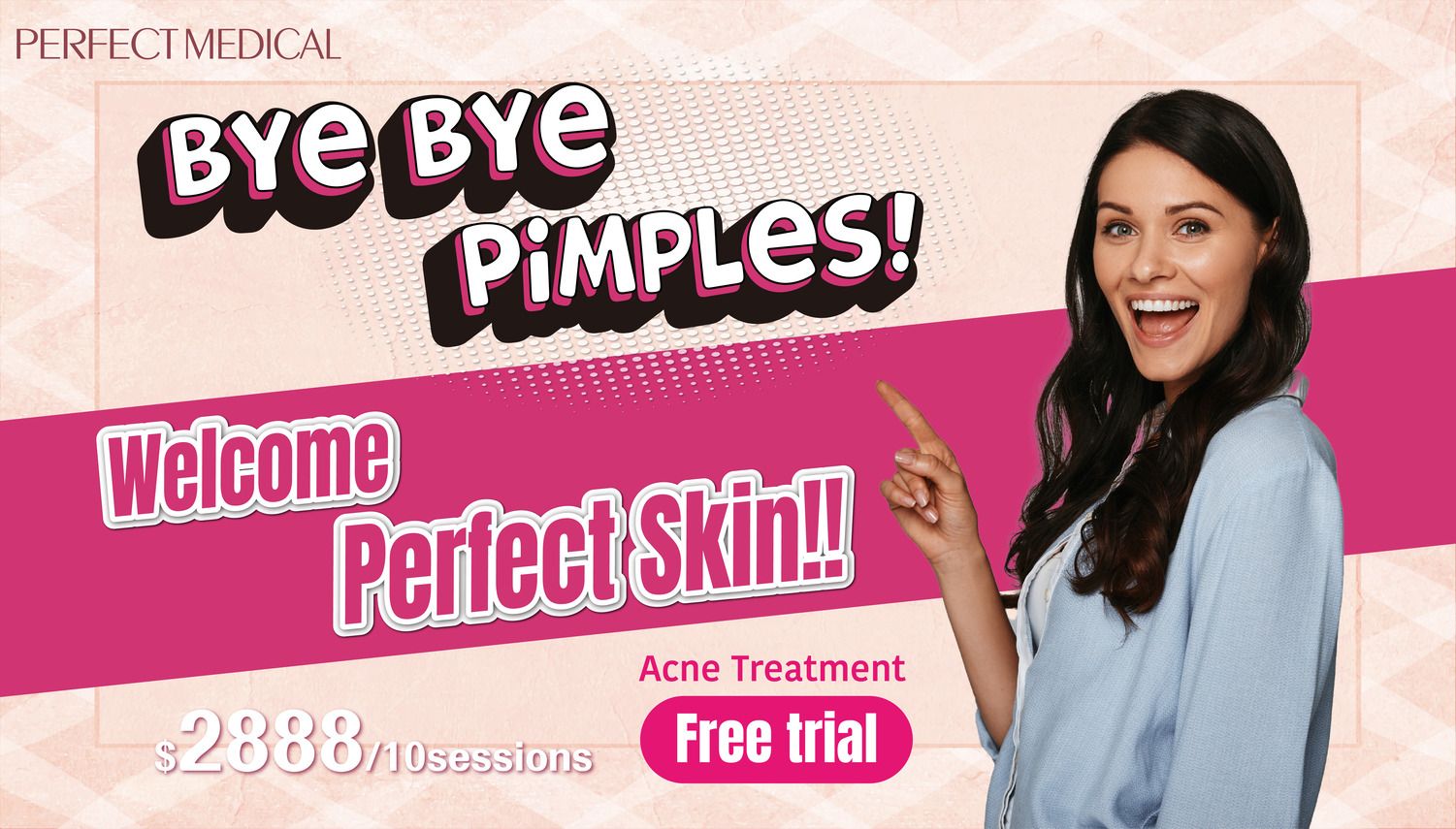
免費體驗
Acne Treatment
1 Minute Self-Registration
Date should not be before minimal date
FAQ

1. Can the menstrual Cycle impact acne and pimples?
Indeed, the menstrual cycle can exert a noticeable influence on the development of both acne and pimples. Hormonal fluctuations occurring throughout the menstrual cycle can lead to increased oil production and changes in skin cell shedding. These factors contribute to the heightened likelihood of clogged pores and the emergence of acne breakouts, including pimples. As a result, many individuals experience an upsurge in acne activity around the time of their periods.
2. What constitutes our pores?
Beneath the surface of your skin, pores are complex structures intertwined with sebaceous glands. These glands produce sebum, a natural oil that helps moisturise and protect the skin. The connection between these glands and pores is facilitated by channels known as follicles. These tiny passageways are further accompanied by thin hair that extend from the follicle and eventually emerge on the skin's outer surface.
3. Can chemical peels and laser treatments be combined to prevent acne?
While combining chemical peels and laser treatments may seem appealing for tackling acne, exercising caution is advisable. The compatibility of these treatments, as well as potential interactions, can be intricate and may vary depending on individual skin characteristics. To ensure safety and effectiveness, it's prudent to consult a qualified dermatologist who can provide personalised guidance tailored to your specific skin needs and goals.
4. How can I prevent the formation of acne scars?
Proactively preventing acne scars involves adopting practices that mitigate the risk of lasting skin damage. Early intervention in the form of acne treatment is paramount. By addressing acne promptly, you can limit the potential for deep inflammation that contributes to scarring. Equally important is avoiding the urge to pick or pop pimples, as this can exacerbate inflammation and increase the likelihood of scarring. To formulate a preventive strategy that suits your skin type and concerns, consulting a dermatologist is a valuable step.
5. Are natural remedies effective for pimples?
Natural remedies, such as tea tree oil, aloe vera, and witch hazel, have gained popularity for their potential to alleviate pimple inflammation and discomfort. While these remedies can offer some relief, it's important to note that individual responses can vary. Consulting a dermatologist provides the advantage of expert guidance tailored to your unique skin profile. They can recommend the most appropriate treatment options, whether natural or medical, to effectively manage your specific pimple-related concerns.
